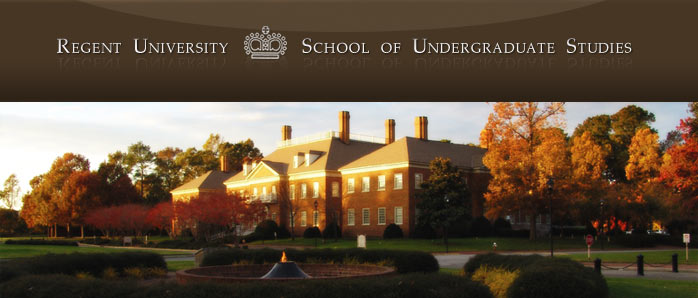
Should America Bring Democracy to the World?
This years debate topic was one that I had been hearing everywhere for the past year… news, class, you name it has been talked about.
This debate brought some of the foremost political leaders of our day to talk about whether or not America should bring democracy to the world. The common ground between these four notable speakers was that they all believed that America should bring democracy to other countries, but the differences came in on how that should be done. Here are their responses and thoughts:
Karl Rove former advisor to President Bush was the first to speak. His immediate response to the question was, "Yes. It's in our national security interest." He talked about the pro’s of democracy and how ultimately it leads to more peaceful and stable government. Charlie Rose then posed the question about the progression of implementing democracy to which Karl Rove responded, “Successful, but the spotlight is on Iraq.” He then made mention of the positive advancement of democracy in countries in Africa and also in Japan and Europe.
General Barry McCaffrey' stance is that democracy is a successful form of government. He specifically stated that he agreed with the hypothesis of democracy, but that we should not forget the disaster it could pose by intervening in other countries with different cultures. He also added later on in the debate that freedom and liberty are of less value than food and other amenities in developing countries.
Gov. Jeb Bush said that we have a role to engage those who are struggling, but that we should not impose democracy on them. He gave these reasons why we should engage:
1. If the United States doesn't do it, who will?
2. Support for democracy isn't done in isolation or against national security interests.
3. It must be done over the long term. It will take a generation of time.
4. We live in an interconnected world that is dramatically different, and more dangerous.
5. Freedom and Liberty is world-wide, for all people.
Max Cleland, former U.S. Senator that we should lead by example, not by force. He then said that, "Leadership by example is hard, the toughest thing on earth." He also referenced Matthew 5:16 by saying that we should “Let your light shine,” not make it shine. He compared that to democracy by saying that we cannot force democracy on anyone.
There were a couple of heated moments about Osama Bin Laden and the war. Overall, the debate was interesting and thought provoking. It makes one think about the issues that our world is facing today. I think democracy can be successful, but a country has to be some what developed to be able to sustain it. Economics play a huge part. If people of a particular country are not having their basic needs met then most likely democracy is not going to work. Survival is going to be more important to them. Other important factors to have a healthy democratic nation are having legitimacy, sovereignty, and authority. Without respect for the government, the country and its leaders it is going to be hard to move forward into democracy.
This years debate topic was one that I had been hearing everywhere for the past year… news, class, you name it has been talked about.
This debate brought some of the foremost political leaders of our day to talk about whether or not America should bring democracy to the world. The common ground between these four notable speakers was that they all believed that America should bring democracy to other countries, but the differences came in on how that should be done. Here are their responses and thoughts:
Karl Rove former advisor to President Bush was the first to speak. His immediate response to the question was, "Yes. It's in our national security interest." He talked about the pro’s of democracy and how ultimately it leads to more peaceful and stable government. Charlie Rose then posed the question about the progression of implementing democracy to which Karl Rove responded, “Successful, but the spotlight is on Iraq.” He then made mention of the positive advancement of democracy in countries in Africa and also in Japan and Europe.
General Barry McCaffrey' stance is that democracy is a successful form of government. He specifically stated that he agreed with the hypothesis of democracy, but that we should not forget the disaster it could pose by intervening in other countries with different cultures. He also added later on in the debate that freedom and liberty are of less value than food and other amenities in developing countries.
Gov. Jeb Bush said that we have a role to engage those who are struggling, but that we should not impose democracy on them. He gave these reasons why we should engage:
1. If the United States doesn't do it, who will?
2. Support for democracy isn't done in isolation or against national security interests.
3. It must be done over the long term. It will take a generation of time.
4. We live in an interconnected world that is dramatically different, and more dangerous.
5. Freedom and Liberty is world-wide, for all people.
Max Cleland, former U.S. Senator that we should lead by example, not by force. He then said that, "Leadership by example is hard, the toughest thing on earth." He also referenced Matthew 5:16 by saying that we should “Let your light shine,” not make it shine. He compared that to democracy by saying that we cannot force democracy on anyone.
There were a couple of heated moments about Osama Bin Laden and the war. Overall, the debate was interesting and thought provoking. It makes one think about the issues that our world is facing today. I think democracy can be successful, but a country has to be some what developed to be able to sustain it. Economics play a huge part. If people of a particular country are not having their basic needs met then most likely democracy is not going to work. Survival is going to be more important to them. Other important factors to have a healthy democratic nation are having legitimacy, sovereignty, and authority. Without respect for the government, the country and its leaders it is going to be hard to move forward into democracy.
“Democracy is not easy. It is a complex, finely balanced system that depends on a political culture that grows best under a market economy with a large, educated middle class and a tradition of pluralism. Centuries of religious and philosophical evolution prepare democratic attitudes. Iraq lacked all these. Eventually Iraq or any other country can turn democratic, but it may take some time” (Cord, Jones, Medeiros, & Roskin, 2006).


1 comment:
I really enjoyed reading through you blog. Keep it up.
Post a Comment